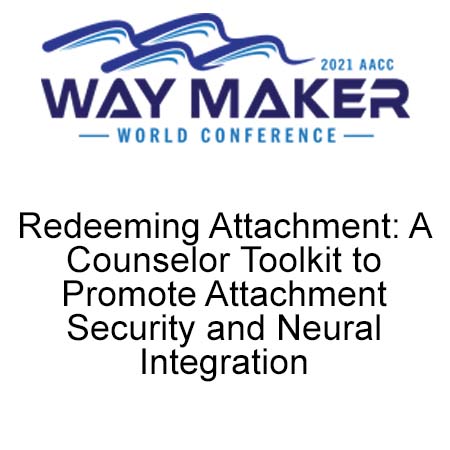Description
410: Redeeming Attachment: A Counselor Toolkit to Promote Attachment Security and Neural Integration
Gary Sibcy, Ph.D.
Liberty University
1971 University Blvd.
Lynchburg, VA 24515
Anita Knight Kuhnley, Ph.D.
Regent University
1000 Regent University Dr.
Virginia Beach, VA 23464
Summary
Attachment styles emerge from our interpersonal histories with early caregivers and, although they have been considered stable, they are not immutable. Insecure styles can be redeemed through structured, intentional clinical interventions (Arriaga, 2017). Interventions can be tailored to maximize neural integration and top-down functioning. This workshop unpacks evidence-based, experiential, and faith-based tools available to help clients move toward attachment security, including clinical applications of a gold standard attachment assessment, evidence-based interventions used in the treatment of chronic depression that have relevance for increasing interpersonal effectiveness, and other applicable tools (Korfmacher, 2010; McCullough et al., 2017). Attendees will have the opportunity to participate in an experiential exercise to increase client desired outcomes in treatment. Participants will also have a chance to apply the conceptual toolkit to cases from the text, Redeeming Attachment (Sibcy & Knight, 2018).
Learning Objectives
Participants will:
• Apply questions from the gold standard attachment assessment that serves as a guide for psychologists and licensed mental health professionals to increase therapeutic rapport, autobiographical competence, and clinical efficiency within the therapeutic context with clients experiencing insecure attachments
• Synthesize interventions promoting neural integration and emotion regulation with clients presenting with attachment injuries to promote effective clinical outcomes
• Create and apply a conceptual toolkit designed to promote neural integration and top-down processing, including evidence-based, experiential, and faith-based interventions and a decision tree with cases from the text, Redeeming Attachment, to implement a treatment plan formulation to facilitate attachment security and desired treatment outcomes





